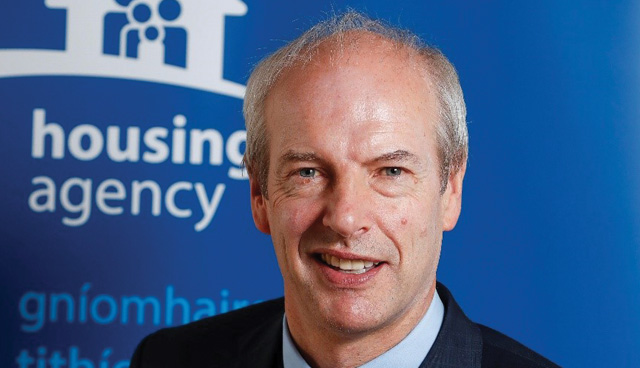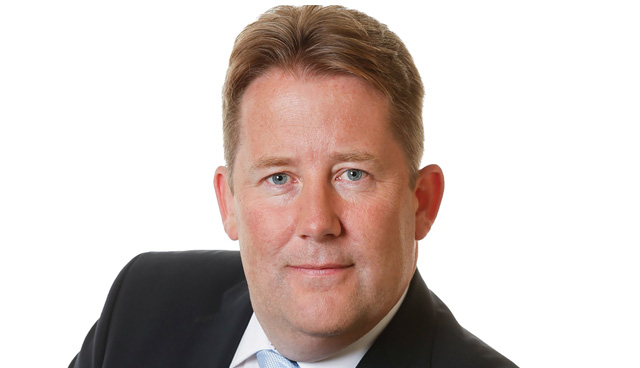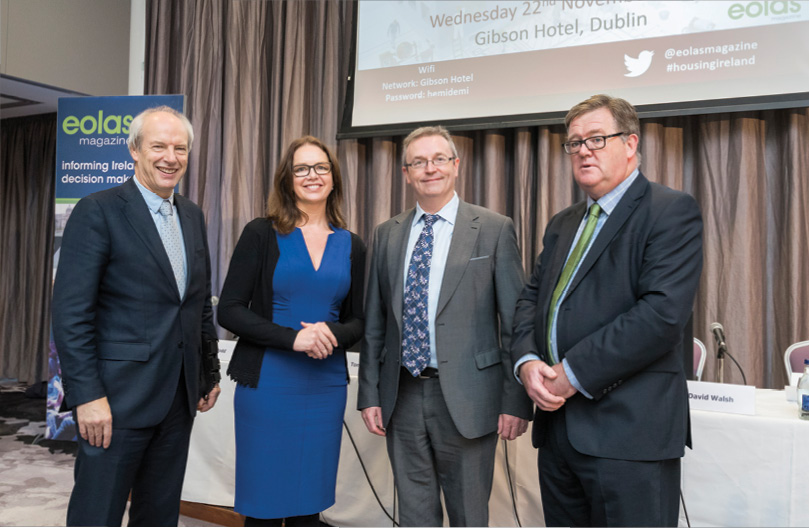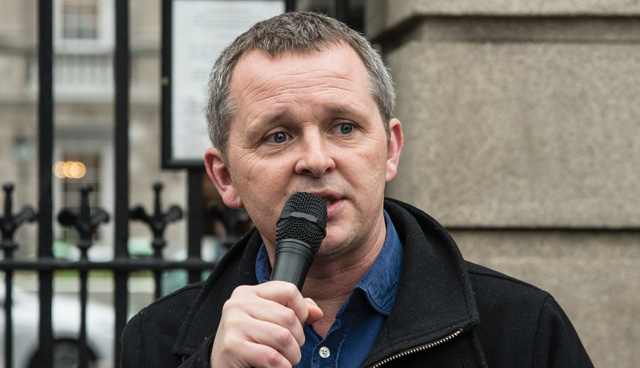
Quicker re-letting through improved efficiencies
1st August 2018
Round table discussion: Challenging homelessness in Ireland
1st August 2018Homelessness figures increase

There are approximately 10,000 people now classified as homeless in Ireland, including adults and children alike. Indeed, the number of families becoming homeless has increased by 31 per cent over the past 12 months.
Worryingly, the total number of Irish people classified as homeless does not include the ‘hidden homeless’, a term which refers to people who are living in squats or ‘sofa surfing’ with friends. Furthermore, women and children staying in domestic violence refuges are not included in these homeless emergency accommodation counts. The national figure also does not include people who are sleeping rough.
In March 2018, the official rough sleeping count confirmed 110 people sleeping rough in Dublin, with an additional number in the Nite Café, without a place to sleep.
In the past, most of the people using emergency homeless accommodation were single adults. But in the last three years, there has been a rapid increase in the number of families becoming homeless, and in May 2018, there were 1,724 families accessing emergency accommodation.
Children now represent more than one-third of those in emergency accommodation. In May 2018, there were 3,826 children in emergency homeless accommodation with their families. The most recent official assessment of social housing need showed that 61,600 households qualified for social housing; one fifth of which had been on the list for more than five years.
Commenting on these trends, Housing Minister Eoghan Murphy said: “Any increase in people in emergency accommodation is very disappointing. However, a number of indicators are emerging which point to a continuation of the stabilisation we have been seeing in recent months. Family homelessness has always been more of a pronounced problem in Dublin than in the rest of the country, so it is encouraging that the numbers of families accessing emergency accommodation in May fell.
“Family presentations to homeless services in Dublin in May also fell. However, an increase of 76 dependents occurred due to the presentation of a number of large families. This is the second month in a row that we have seen this and it is worrying as exit pathways for larger families can be more difficult to secure.
“Outside of Dublin the picture is also one of stabilisation, with no increase in adults, but a significant increase in families in only one region. This is something we need to get to the bottom of because it’s an outlier insofar as the rest of the country and Dublin are concerned.”
The Minister also referred to the recent publication of two reports he had commissioned in this area. He continued: “In recent weeks, I have received two reports: one from the Dublin Region Homeless Executive, examining trends evident since the beginning of the year; and, a report from the Homeless Inter-Agency Group, established to ensure an effective and coordinated response by all of the Government Departments and Agencies involved in the delivery of homeless services.”
“My Department is examining the issues identified in the two reports and I will be bringing forward policy responses to address these issues as a matter of priority. These reports have already been discussed with the Joint Oireachtas Committee, and I will be holding a third Housing Summit with the Chief Executives from each local authority on 3 July, where tackling homelessness will be one of the topics addressed.”
Meanwhile, a survey is currently being conducted to establish whether or not any more families or individuals have been counted as being in emergency accommodation when they are in fact in homes. This work is due to conclude shortly. Detailed work is also being conducted in to the adequacy of current data collection and reporting systems.
With regard to delivering permanent housing solutions to single people who are dependent upon emergency accommodation, the Minister announced that a National Implementation Strategy for Housing First will be published in July, setting targets for the expansion of Housing First nationally.
“Children now represent more than one-third of those in emergency accommodation. In May 2018, there were 3,826 children in emergency homeless accommodation with their families.”
The Minister stated: “We know that Housing First is working in Dublin with a retention rate approaching 90 per cent for the 192 people who have been housed under this new programme. Further programmes are now commencing in Cork, Galway and Limerick.
My Department is working closely with the Dublin Region Homeless Executive, Department of Health, the HSE, local authorities and NGOs on the implementation of Housing First. The National Plan will set ambitious targets to increasing the number of supported tenancies with the local authorities and the HSE working closely to provide a coordinated delivery of housing and health supports.”
Commenting on the latest homeless figures, Focus Ireland CEO Pat Dennigan said: “What is driving these figures upwards is that the number of people becoming newly homeless is continuing to rise.
“Over the last few months there has been a noticeable decline in the number of private rented/HAP properties on the market and in the number of social houses available. As a result people are finding it increasingly difficult to move out of homelessness. Although there are some signs that the rate of house building is beginning to pick up, these latest figures are a timely reminder that the increase is still far too slow, and the crisis continues to deepen.”
Focus Ireland has expressed significant alarm at the rise in families newly entering homelessness. The organisation’s figures for the numbers of families who became newly homeless each month in Dublin showed a 24 per cent increase in the first five months of 2018 when compared with the same period in 2017.
In total 462 families became newly homeless in Dublin in the first five months of the year. Focus Ireland is the lead agency supporting these families through its family team services funded by the Dublin Region Homeless Executive.
In light of these figures, Focus Ireland is calling on the Government to take action on three fronts. The first is for government to significantly increase the amount of housing which is being built by Local Authorities and Approved Housing Bodies. This will involve using the publicly owned landbanks available which are sufficient to build 30,000 homes in the place where they are needed.
In addition, Focus Ireland wants the Government to introduce measures to prevent buy-to-let landlord from evicting tenants in order to sell up or move in family members.
There is also a need to revisit proposals to make the thousands of vacant properties around the country available. According to Focus Ireland, it is clear that the current set of incentives has failed to open up this essential resource, and the Government must now move to penalise people who are leaving homes vacant for no good reason.
Dennigan concluded: “I would still always highlight that here is much good work being done by the State, Local authorities and NGO’s such as Focus Ireland and without this the current crisis would be so much worse. But more needs to be done to keep people in their homes and prevent them from becoming homeless in the first place. The Government needs to move from managing rising homelessness towards ending it and must take the decisions required to do this.”






